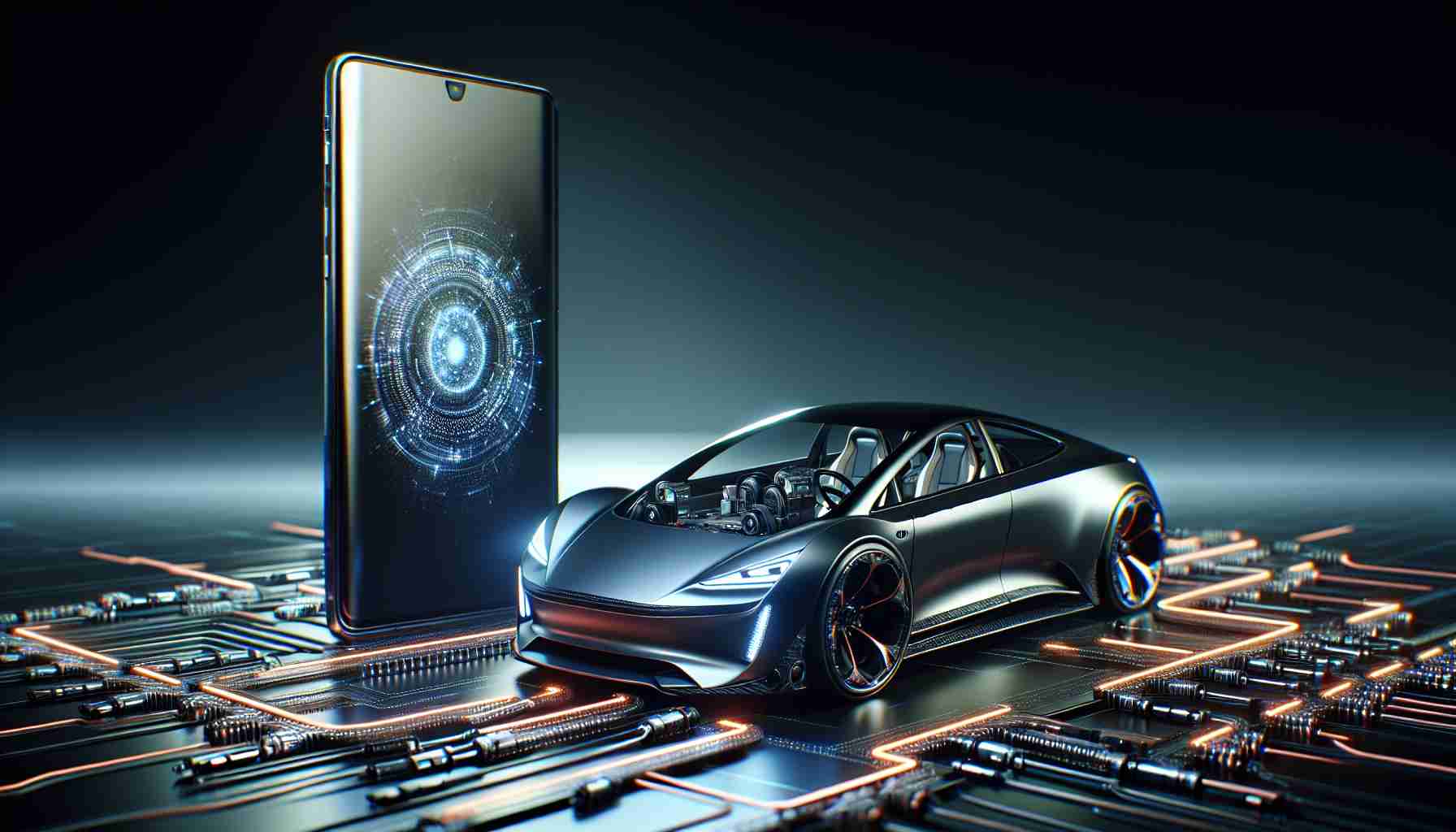Foxconn, famous for assembling Apple’s iPhones, embarks on an automotive venture, unveiling its electric car with high ambitions. Tais Chuu, an engineer at Foxtron – a subsidiary of the Taiwanese titan Foxconn – proudly presents the “Model B” electric vehicle. The interior boasts a control center reminiscent of a supersized iPhone, which Chuu confirms is by design, hinting at the company’s experience in producing Apple’s smartphones.
Determined to disrupt the EV marketplace, Foxconn aims to capture a 5 percent market share by 2025. Such lofty goals aren’t unfounded given Foxconn’s vast resources, employing hundreds of thousands worldwide and raking in billions in revenue. This new direction isn’t merely business but also stems from geopolitics, with the company diversifying away from a volatile Chinese market that poses risks to Taiwanese interests.
Foxconn’s first foray into the automobile industry doesn’t stop at sedans like the “Model B.” Foxtron offers an eco-friendly SUV with a wallet-friendly price tag, already attracting thousands of pre-orders. While some may see this move as a competitive strike against established European brands, Foxconn plays a dual game, seeking partnerships rather than rivalry.
In New Taipei City, Foxconn operates in an innovative space among various car manufacturers. Jimmy Huang, a Foxconn spokesperson, emphasizes that the company’s strength lies in the vehicle’s electric and digital backbone rather than the complete car, opening doors to collaboration rather than confrontation.
As phone production faces uncertainties with China’s stance toward Taiwan, Foxconn eyes the strategic benefits of expanding into new industries. The shift could potentially bolster Taiwan’s economy and national security, as the island seeks to reduce dependence on trade with China. Meanwhile, the U.S. intensifies its trade conflict with China, hiking tariffs on several imports, including electric vehicles, which may alter the global trading landscape.
Key Questions and Answers:
– What are the strategic reasons behind Foxconn’s entry into the electric vehicle (EV) market?
Foxconn’s entry into the EV market can be attributed to both business diversification and geopolitical strategy. The move allows Foxconn to expand beyond its traditional manufacturing base, reduce dependence on the volatile Chinese market, and may improve Taiwan’s economic resilience and national security.
– What challenges might Foxconn face in the EV market?
Foxconn, while experienced in technology manufacturing, is a newcomer to the automotive industry. Challenges include establishing credibility as an automotive brand, ensuring quality and safety standards are met, innovation in battery technology, and competing with established automotive giants especially in a market space that’s becoming increasingly crowded.
– How might Foxconn’s experience with technology manufacturing influence its approach to making EVs?
Foxconn’s proficiency in precision manufacturing, supply chain management, and massive scale production gained from making consumer electronics like iPhones, can translate well into producing EVs. Its focus on the digital and electric infrastructure of vehicles may lead to innovation in these areas and provide a competitive edge.
Advantages and Disadvantages:
– Advantages:
1. Foxconn’s extensive experience in manufacturing and supply chain optimization could give it an edge in producing EVs efficiently.
2. Taiwan’s robust semiconductor industry could benefit Foxconn’s EV production, which is heavily reliant on electronics.
3. By positioning as a collaborator rather than a competitor, Foxconn could generate multiple revenue streams through partnerships.
– Disadvantages:
1. Lack of experience in the automotive sector may result in a steep learning curve and initial quality or perception issues.
2. Established vehicle brands have the advantage of customer trust and a track record in car manufacturing which Foxconn lacks.
3. The EV market is subject to fast-paced technology changes and requires continuous R&D investment, which Foxconn will need to keep up with.
Key Challenges or Controversies:
One of the key challenges Foxconn will need to address is market penetration and competition against established names in the automotive industry. Additionally, there’s the technical challenge of battery technology, driving range, and charge infrastructure that are central to EV success. There might also be controversies related to the environmental impact of battery production and disposal that Foxconn must consider.
For more information:
To learn more about Foxconn, you can visit their official website with the following link: Foxconn.
To understand more about the global electric vehicle market, you can research through industry reports and automotive news sources that assess the latest trends, technological advancements, and market analyses.
